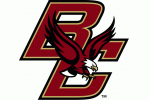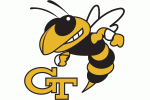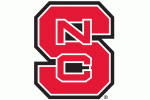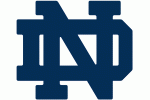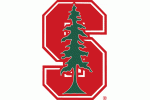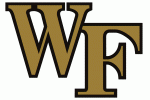Let us watch physical activities like basketball from the demands of academic pursuits. The traditional viewpoint is that excelling in one field naturally adds probability to success in the other. This article seeks to solve the complex relationship between athletic engagement, particularly in basketball, and academic triumphs.
If you are looking for effective ways of boosting your academic success, reaching out to writers of EssayShark will make your papers better. Try asking for assistance to see the great results.
Physical exercise and cognitive benefits
Regular basketball activity impacts an individual's physical health and cognitive functions. As we know, the connection between physical exercise and cognitive function is a well-established fact. Basketball contributes to cardiovascular fitness and overall endurance, and with its fast nature, detailed plays, and split-second decision-making, it becomes a stimulant for cognitive processes. Dribbling through defenders, anticipating competitors' moves, and strategically positioning oneself on the court demand athletes to show high focus and attention. By sharpening the ability to concentrate, students learn to maintain focus during lectures, study sessions, and exams.
Considering that players must adjust their strategies based on the evolving dynamics of the game, it can help guide the complexities of academic challenges. Players refine their ability to approach academic challenges flexibly and resiliently by adapting to different game scenarios.
Team dynamics and collaboration
Basketball is a sport for building essential teamwork and collaboration skills and learning to understand and respect individual roles within a team. Adapting to the strengths and weaknesses of teammates and developing a shared language of signals and non-verbal alerts are essential components of successful teamwork. The game's fast-paced nature requires players to make split-second decisions, emphasizing the importance of trust and understanding among teammates. The collaborative effort to strategize and run plays fosters a unique set of skills directly transferable to academic environments.
Communication skills, such as expressing ideas and providing constructive feedback, result from the constant communication on the basketball court. Moreover, sports teams' shared sense of purpose infuses a collective drive toward achieving common academic goals. Collaborative skills gained from basketball seamlessly align with the demands of academic group work.
Discipline and time management
As a physically demanding sport, basketball necessitates strict training sessions and commitments to regular games. The challenging nature of these activities instills a sense of discipline essential for success both on and off the court. The discipline cultivated through basketball extends beyond the court, becoming a powerful catalyst for developing practical time management skills. Student-athletes engaged in basketball learn to navigate challenging schedules, balancing training and recovery periods. Their boosted sense of discipline empowers individuals to effectively use time, a skill that seamlessly flows into academic environments.
Basketball routines include pre-game preparations and team meetings, commitment to deadlines, and punctuality. Athletes learn to prioritize tasks, meet academic obligations, and allocate dedicated study periods, creating a disciplined approach that enhances academic performance. This sport can teach you to develop a comprehensive schedule with educational and basketball commitments and identify and prioritize tasks based on urgency and importance. This helps in managing academic deadlines alongside basketball obligations. Also, its activities promote open communication with coaches and professors, creating a supportive environment where both ways can boost.
Stress relief and mental well-being
The physical exertion, strategic thinking, and immersive nature of basketball help reduce stress by promoting the release of endorphins—natural mood lifters. Beyond the physical aspect, the fellowship built within a basketball team encourages a sense of belonging, creating a supportive community. It can be an instrument for relieving mental stress and enhancing overall well-being. A sound mental state is an essential foundation for academic success. By participating in basketball and encouraging mental well-being, students can improve focus, enhance cognitive functions, and better emotional regulation.
Incorporating some techniques from games can help with overall academic stress management. Techniques such as "mental timeouts" provide moments of reflection and visualization exercises that assist students in visualizing success and managing performance anxiety during exams or presentations. Additionally, adopting a mindful approach to practice and competition can translate into a new mindset that proves invaluable in navigating academic challenges.
Challenges and strategies
The demanding schedules of athletes, strict training, and frequent travel can create loads that may impact their academic performance. Recognizing these challenges and developing effective strategies for overcoming them is essential.
First, juggling intensive basketball training and academic commitments leads to time constraints, making it challenging for student-athletes to manage both effectively. Second, fatigue because the physical demands of basketball can affect concentration and energy during academic pursuits. Third, tournaments, away games, and frequent travel may disrupt regular study routines, making it crucial to find adaptive approaches to learning.
Students need teamwork, coaching, and family support to manage all these challenges. It fosters open communication with them to create an understanding of life priorities, emotional encouragement, and assistance.


